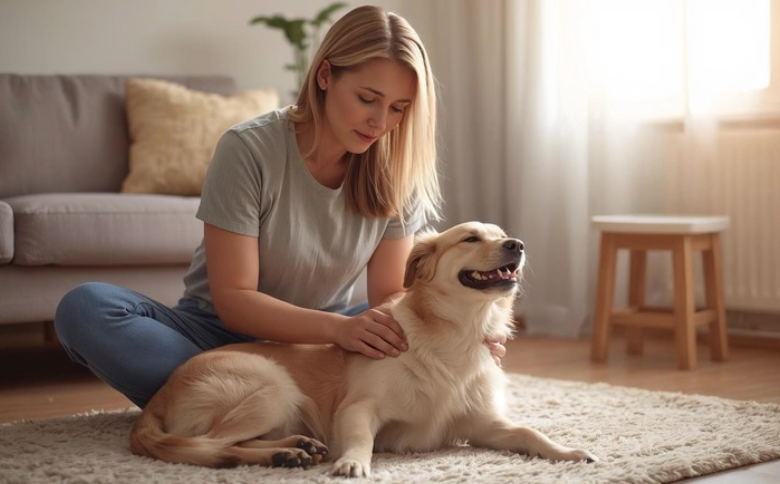By: Dr. Victoria Susman, DVM

For many pets and pet owners, vaccines are a routine part of veterinary visits. Vaccines—or some variation of them—have been around for centuries, helping to eradicate and control diseases while allowing pets to live longer, healthier lives.
Vaccines work by stimulating the immune system so pets can fight off future exposure to a disease. While some protection can last years, boosters are typically needed to remind the immune system what the infection looks like.
Just like people, pets can experience mild symptoms after a vaccine. These symptoms are usually normal, caused either by the immune system doing its job or the injection itself, and generally resolve quickly with no lasting effects.
Common Post-Vaccine Symptoms That Generally Do Not Require Intervention
Most of these mild symptoms are normal and usually resolve on their own:
- Lethargy or sleepiness
- Soreness at the injection site (sometimes causing mild lameness in the affected leg)
- Mildly reduced appetite
If you notice these symptoms, your pet should be back to their usual self by the following day. If the symptoms seem more severe, you are always welcome to call for advice. In some cases, your pet may receive pain medication at home or in the hospital to ease discomfort. Otherwise, letting them rest and take it easy is usually sufficient.
Vaccine Reactions That Warrant Further Care
Occasionally, the immune system may overreact to a vaccine, causing a significant inflammatory response. These reactions are rare but can be serious and require veterinary attention.
Watch for the following:
- Vomiting
- Diarrhea
- Hives
- Significant swelling, especially of the face
- Collapse
- Difficulty breathing
- Significant lethargy (e.g., hard to wake your pet)
These events are understandably concerning. Thankfully, they are rare—a recent study identified serious reactions in just 19.4 out of 10,000 visits (0.19%).
When planning your pet’s vaccine schedule, we personalize it based on their overall risk level, lifestyle, size, age, the number of vaccines due, and previous vaccine history. Depending on the vaccine and severity of any reaction, we may adjust the number or type of vaccines given, pre-administer an antihistamine like diphenhydramine, and increase monitoring at the hospital and at home. These precautions help ensure pets don’t experience a similar reaction in the future.
Why Monitoring Matters
Vaccines play a critical role in the health of your individual pets, the broader animal population, and even human health. It’s important to monitor pets for at least 24–48 hours after vaccination to ensure they are recovering as expected.
If your pet shows any of the concerning symptoms above, or if you have questions about their vaccine schedule, please call us right away—we’re here to help and support you and your pets.







